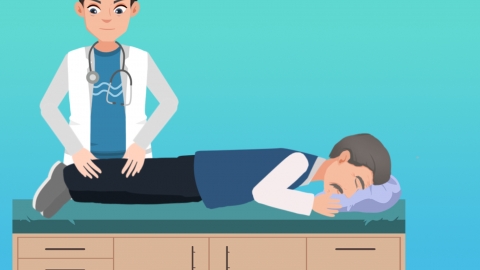Why do elderly people experience hallucinations at night?
Generally, if elderly individuals experience hallucinations at night, it may be caused by poor sleep environment, sensory decline, Alzheimer's disease, cerebral infarction, or dementia with Lewy bodies. If symptoms persist, it is recommended to seek timely medical evaluation and treatment at a正规 hospital. Specific analyses are as follows:
1. Poor Sleep Environment
Insufficient lighting or noise disturbances at night can cause blurred visual and auditory perception in the elderly, making them prone to misinterpreting shadows and sounds as real objects, thus triggering hallucinations. Before bedtime, adjust indoor lighting to soft night lights, turn off noisy devices, and place familiar items around to enhance a sense of security.

2. Sensory Decline
Declining vision and hearing in the elderly lead to insufficient sensory input at night, causing the brain to fabricate information to fill perceptual gaps, resulting in hallucinations. Timely use of appropriate eyeglasses and hearing aids is recommended. When speaking at night, caregivers should slow down their speech and speak louder to reduce perceptual errors.
3. Alzheimer's Disease
Neurodegeneration in the brain impairs cognitive function, and hallucinations are more likely to occur when consciousness clarity decreases at night. Medications such as donepezil hydrochloride tablets, rivastigmine tartrate capsules, and huperzine A tablets may be used under medical guidance. Family members should provide continuous companionship and psychological support.
4. Cerebral Infarction
Cerebral infarction can affect the brain’s sensory centers and trigger hallucinations. Under medical supervision, medications such as enteric-coated aspirin tablets, clopidogrel hydrogen sulfate tablets, and atorvastatin calcium tablets may be taken. In severe cases, cerebral vascular stent implantation may be required.
5. Dementia with Lewy Bodies
Accumulation of Lewy bodies in the brain damages nerve cells, frequently leading to visual hallucinations, often accompanied by motor slowness. Medications such as memantine hydrochloride tablets, risperidone tablets, or olanzapine tablets may be prescribed under medical guidance. Avoid strong light stimulation and maintain a regular daily routine.
In daily life, it is important to create a safe and familiar living environment for the elderly and conduct regular sensory function check-ups. Encourage older adults to engage in moderate daytime activities and maintain a consistent sleep schedule at night. Closely monitor their mental status and seek medical intervention promptly if any abnormalities are detected.




